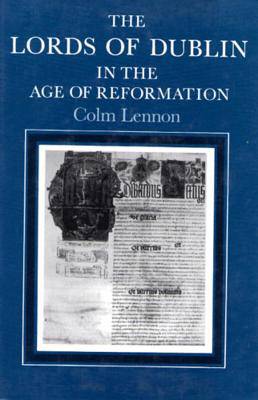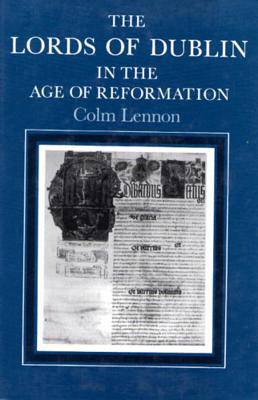
Je cadeautjes zeker op tijd in huis hebben voor de feestdagen? Kom langs in onze winkels en vind het perfecte geschenk!
- Afhalen na 1 uur in een winkel met voorraad
- Gratis thuislevering in België vanaf € 30
- Ruim aanbod met 7 miljoen producten
Je cadeautjes zeker op tijd in huis hebben voor de feestdagen? Kom langs in onze winkels en vind het perfecte geschenk!
- Afhalen na 1 uur in een winkel met voorraad
- Gratis thuislevering in België vanaf € 30
- Ruim aanbod met 7 miljoen producten
Zoeken
The Lords of Dublin in the Age of Reformation
Irish Academic Press Irish Academic Press
€ 64,95
+ 129 punten
Omschrijving
This study of establishment Dublin in the Elizabethan period draws on the consider- able body of documentation which survives in the city archives and elsewhere - assembly rolls from 1550, treasury and sheriffs records from 1541, and minutes of the alderman's bench the corporation from 1567 - and also on a wide variety of other contemporary writings and sources. The Dublin of the period saw the rise of the aldermanic elite to a dominant role in civic politics and society. Dr Lennon explores the world of these patricians against the background of civic privilege, state policy and the growth of recusancy. He is also concerned to show how they consolidated their social position through marriage with fellow-patricians and gentry, and investment in urban and rural properties. Reconstructed biographies of some hundred leading councillors are supplied. In the course of the study, the author provides a valuable survey of the topography and history of late medieval Dublin and of public affairs in general in the period 1548- 1613.
Specificaties
Betrokkenen
- Auteur(s):
- Uitgeverij:
Inhoud
- Taal:
- Engels
- Reeks:
Eigenschappen
- Productcode (EAN):
- 9780716524199
- Verschijningsdatum:
- 1/12/1989
- Uitvoering:
- Hardcover
- Formaat:
- Genaaid
- Afmetingen:
- 165 mm x 235 mm
- Gewicht:
- 916 g

Alleen bij Standaard Boekhandel
+ 129 punten op je klantenkaart van Standaard Boekhandel
Beoordelingen
We publiceren alleen reviews die voldoen aan de voorwaarden voor reviews. Bekijk onze voorwaarden voor reviews.









